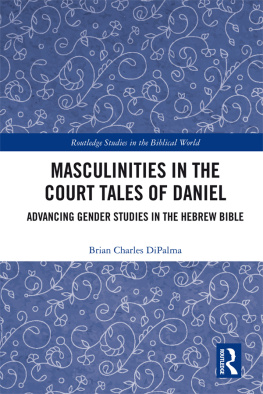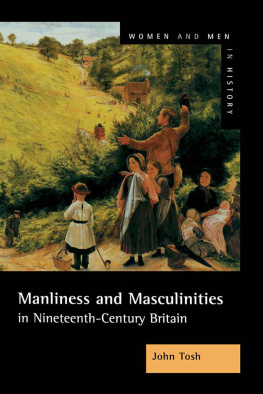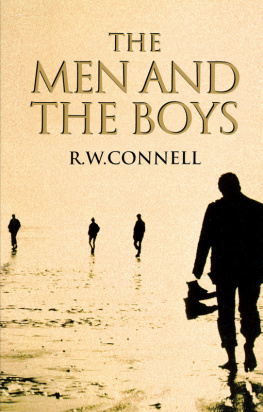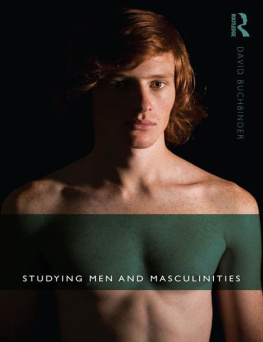
Masculinities and Desire
Masculinities and Desire considers the question of male subjectivity in relation to Deleuze and Guattaris theory of desire. Western tradition has thought of desire from the vantage point of masculine subjectivity; what happens when the order is reversed, and desire speaks through masculinity? Can masculinity can be conceived beyond the gender binary and thus affirm its potential to transcend the patriarchal order? In answer, Masculinities and Desire calls for a radically new approach to traditional cultural criticism. Contributing a critical male perspective, the book sheds new light on the conceptual and ethical limits of established, representational (gender) criticism. Reflecting on masculinity with Deleuze, the book explores what happens to the masculine subject in his becoming-minoritarian and thus emerging as a work of desire. Wojtaszek examines the confining representations of masculinity in realms long associated with men, such as violence, virulent psychosis, metaphysical cannibalism and virtualization. Inspired by Deleuzes appeal for immanence, Wojtaszek argues that films including American Psycho, Fight Club, Becoming John Malkovich and The Matrix are adventures of deterritorialization that imaginatively tackle various masculinities, affirming their creative resistance and reinvention of subjectivity. Desire is revealed to be a powerful catalyst for escaping the regime of patriarchal representation.
Marek Wojtaszek is an assistant professor at the Faculty of International and Political Studies at the University of Lodz, Poland, affiliated with the Department of American and Media Studies, and the Womens Studies Center. His main areas of research include body and space, Deleuzes philosophy, digital and visual culture, and aesthetics and media ecologies.
Masculinities and Desire
A Deleuzian Encounter
Marek Wojtaszek
First published 2019
by Routledge
2 Park Square, Milton Park, Abingdon, Oxon OX14 4RN
and by Routledge
52 Vanderbilt Avenue, New York, NY 10017
Routledge is an imprint of the Taylor & Francis Group, an informa business
2019 Marek Wojtaszek
The right of Marek Wojtaszek to be identified as author of this work has been asserted by him in accordance with sections 77 and 78 of the Copyright, Designs and Patents Act 1988.
All rights reserved. No part of this book may be reprinted or reproduced or utilised in any form or by any electronic, mechanical, or other means, now known or hereafter invented, including photocopying and recording, or in any information storage or retrieval system, without permission in writing from the publishers.
Trademark notice: Product or corporate names may be trademarks or registered trademarks, and are used only for identification and explanation without intent to infringe.
British Library Cataloguing-in-Publication Data
A catalogue record for this book is available from the British Library
Library of Congress Cataloging-in-Publication Data
Names: Wojtaszek, Marek M., author.
Title: Masculinities and desire: a Deleuzian encounter / Marek Wojtaszek.
Description: Abingdon, Oxon; New York, NY: Routledge, 2019. | Includes bibliographical references and index.
Identifiers: LCCN 2018045804 | ISBN 9781138346369 (hardback: alk. paper) | ISBN 9780429437328 (ebook)
Subjects: LCSH: Masculinity. | Desire. | Deleuze, Gilles, 19251995.
Classification: LCC BF692.5 .W65 2019 | DDC 155.3/32dc23
LC record available at https://lccn.loc.gov/2018045804
ISBN: 978-1-138-34636-9 (hbk)
ISBN: 978-0-429-43732-8 (ebk)
Typeset in Goudy
by Newgen
To my mother and my companion Katarzyna
On every plateau
Contents
The subject in question
Our figurations of ourselves and of reality stand in need of perpetual renewal. That which was once thought to be a discovery and promised rejuvenation, both theoretically and practically, tends to grow stale and becomes popular banality. Convention and habit replace resourcefulness and intellectual vitality. It is inevitable for the distinction to emerge between openness and encounter, on the one hand, and stability and dogma on the other. Traditionally, the latter opposes the former, operating according to the logic of a backward motion, introducing recovery in lieu of discovery, construction in lieu of production, reproduction in lieu of creation. The pursuit of always new experience and knowledge not infrequently meets the resistance of entrenched positions. It is not uncommon that these two contradictory drives coalesce, causing oppositional tensions of either experimentation or recollection. Thus, dogmatic certitude becomes exposed to questioning, whereas critique is often found blasphemous, disloyal or sacrilegious. Consolidated ideas of ourselves and the world begin to be perceived as natural, hence their general affiliation with truth, peace and harmony.
This book seeks to consider the question of subjectivity, which resides at the crossroads of these contradictory drives. As a central problem of Western philosophy and culture, the notion of subjectivity accounts for the unique capacity of human beings, perhaps alone among the creatures of the world, to reflect upon themselves. As such, one might conceive of subjectivity as the essence of the pursuit of knowledge. This understanding, which is predicated upon the assumption of reflexivity as peculiar to humans, pertains as much to philosophy, rendering it the reflective activity par excellence. This observation touches upon another, deeper, layerthat of thought itself, of what it means to think. What makes it possible to ground philosophy in the essential act of a subject, that is, reflection upon, which is regarded as fundamental for Western philosophical enterprise? Aligning myself with Gilles Deleuze, I argue that it is the specific image with which thought has been endowed by Western philosophy that defines thinking as a natural capacity of the subject aiming at truth.
A philosopher is willing to assume that mind as the mind, thinker as the thinker wants truth, loves or desires truth, and seeks truth naturally It suffices to decide and devise a method which would overcome external influences, which distract thought from its vocation and order it to mistake falsity for truth.
(2000, 91)
This image, which Deleuze investigates in Difference and Repetition, bears the name of representation. It becomes the normative standard for both how we define thinking and for all images. As a corollary, the concept of the subject originates from, and depends upon, the more underlying presumption of what it means to think. The question of subjectivity thus remains intrinsically entwined with that of representation as the established image of thought. Representation is entrusted with the function of bridging the gulf between a given thing (also oneself) and an accurate representation thereof, which makes of it a mechanism of correspondence that abides by the principle of truth. One can consequently conceive of subjectivity as a self-representation. Admittedly, it might appear more appropriate to speak of the self, which is a colloquial umbrella term bringing together divergent notions coming from various disciplines that globally refer to the activity of reflection. Among these are, for instance, soul, consciousness, ego, person and agent as well as subject. My choice of the latter is justified by the critical engagement with Gilles Deleuzes philosophy and Flix Guattaris schizoanalysis and their collaborative theory of desire, which I see as standing in radical opposition to the entire Western legacy of rational and transcendental philosophies, from which the notion of the subject emerges and with which it is intimately intertwined. Furthermore, my focus is validated by my discussion with various waves of feminisms, for which the issue of subjectivity in the context of sexual and gender difference has always been of pivotal concern.









